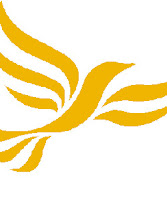Since starting my company ramsac in the recession of the early 1990s the impact of the incumbent government of the time, on the success or failure of small businesses cannot be underestimated. Twenty years and three prime ministers later and we find the country coming out of another recession and a new coalition government in place. So what does the future hold for the current and future captains of UK industry? Well, to learn about the future it is a good idea to look at the past.
We conceived our company, ramsac, along with many other entrepreneurial businesses, at the end of the last Conservative government under Margaret Thatcher. However, the business actually started life, in earnest, during the economic downturn in the early 1990s when John Major had taken office and the reality of doing business had altered. In many ways it was not an ideal time to be starting a fledgling company, but whilst the economy was tough, the government was always supportive of British business and the entrepreneurial spirit - which is just as important, if not more so, today.
My first experience of how the government can have a significant and direct affect on small business came in 1997 at the dawn of the new Labour era. Regardless of political persuasion it is evident to all who worked hard to build and grow their businesses during this time that many of the advantages we once took for granted had been eroded, with increased, costly and cumbersome legislation. In fact it is reputed that there was one new piece of legislation for every day of the Labour government’s term, despite a pledge to tackle red tape for small enterprises during the launch of the Labour party’s 2001 election manifesto. The cost to businesses since 1998 was estimated by the British Chamber of Commerce last year to be in the region of £77bn, so fingers crossed the new ‘one in one out’ rule will put a stop to much of required bedtime reading!
So what changes will the new government bring to business? Certainly, with the astronomical levels of government borrowing an increase in widespread taxation is almost inevitable. Yet most employers will be breathing a collective sigh of relief that the planned rise in National Insurance contributions will now not take place. In fact, the good news for those entrepreneurs starting out now is the planned waiver of the employers' National Insurance contribution on the first ten employees they hire in the first year of business.
I hope that the new coalition government with the former economist, Vince Cable as Secretary of State for Business, Innovation and Skills, embrace the importance of hard working and innovative UK businesses and the entrepreneurs who invigorate and drive them. To this end I hope that the entrepreneurs’ relief that was introduced in 2008 will be fully supported by the new government. Also, I welcome plans to make it easier for SMEs such as my own organisation to win prized government contracts, although only time will tell if businesses have the inclination to submit a tender.
Finally, I would argue that the announcement of a five-year fixed parliament is a positive step in uncertain times. Whether your views are left, right or centre the best government for business is a stable government that gives a strong signal that GB Plc is ripe for investment, something which is good for all businesses of all sizes and the country as a whole.
Thursday, 20 May 2010
Subscribe to:
Post Comments (Atom)







No comments:
Post a Comment